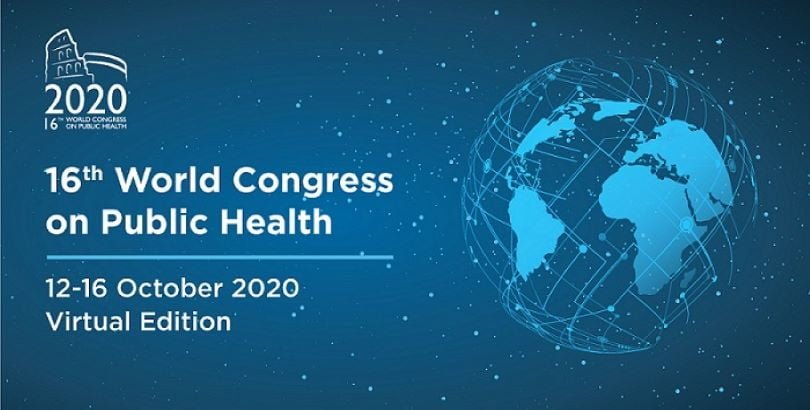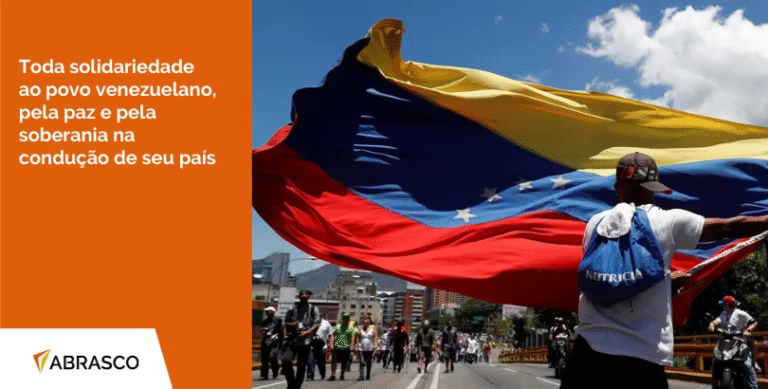
When a group of health professionals from China arrived at Malpensa Airport in northern Italy on 18th March to share their experience and learning in tackling Covid 19 and some essential medical supplies, they unfurled a banner “We are waves from the same sea, leaves from the same tree, flowers from the same garden”. Public health professionals around the world have been united working in solidarity for the common good and betterment of humankind, leading the scientific analysis and advise to decisionmakers, and on front lines in the field practically tackling the ongoing Covid 19 global public health emergency. People have gone to their balconies and front doors to applaud and convey their admiration and thanks for their work and other health professionals in these extraordinary times.
The 16th World Congress on Public Health is due to be held from 12 to 16 October 2020 as a fully online conference. The theme of the Congress “Public health for the future of humanity: analysis, advocacy and action” is even more relevant now than ever before. The individual, community and institutions of society are key protagonists and chief stewards for health from whose values and interactions the future emerges. When the global pandemic was declared, the World Health Organization, in collaboration with the Global Research Collaboration for Infectious Disease Preparedness and Response (GLOPID-R), organised a Global Forum on research and innovation for Covid 19 (‘Global Research Forum’). The WHO-GLOPID-R Covid 19 Global Research and Innovation Forum highlighted some key values in addressing the global pandemic, namely solidarity, equity, trust, autonomy, equal moral respect, and vulnerability. Such ethical principles were not intended for abstract philosophical arm chair debate but have significant implications for policy, research and practice at this time. There has been “a cry for ethical global leadership” to consider and address health inequity and to use the learning and experience from the global Covid 19 pandemic to build a just, healthier, and peaceful world. Public health is the work, art and science of preventing disease, prolonging life and promoting health through the organised efforts of society. At this time, there is urgent need to reconsider the organised efforts of society and role of individuals, communities and institutions which they serve.
What this global pandemic and other public health emergencies, such as climate change, clearly demonstrate is recognition of the interdependence and interconnectedness of all people in the world and their environments, and the need for unity, not only to overcome this common threat but also for building a healthy peaceful future for all humanity. Global cooperation and coordination during a pandemic outbreak can be considered both an epidemiological imperative and a moral duty, and the way we need to live and work together in the future. Such a world will need to address the scandalous social and economic inequities, which continue “to kill people on grand scale”1 and issues around race and gender which have direct impact on health and wellbeing and the right to health and human rights of all peoples.
There is urgent need to invest in public health and care services and work together as citizens of one planet to deliver the 2030 sustainable development goals, all of which have implications for our health and wellbeing. Following World War 2nd, there was emergence of significant international and national organisations, such as the United Nations, UNICEF, World Bank, World Health Organization and other agencies
calling for greater international cooperation. The science, the evidence and experience from the Covid 19 global pandemic clearly highlight our interconnectedness and our environments, the oneness of humankind and the case for a One Health approach to global health, and urgent need for evaluation and strengthening of international organisations to serve all people on our planet. The public health community throughout the world is united and stands ready and eager to support policymakers, individuals and communities in our common endeavour to build a just healthier future for humankind and the whole planet.
This is a statement by World Federation of Public Health Associations (WFPHA), European Public Health Association (EUPHA), Italian Society of Hygiene, Preventive Medicine and Public Health (SItI), and UK faculty of public health (FPH).
National Associations
Albanian Epidemiological Association
La Asociación Argentina de Salud Pública
Austrian Public Health Association
Public Health Foundation of Bangladesh
Belgian Association of Public Health
Brazilian Association of Collective Health -ABRASCO
Chilean Society of Public Health
Bulgarian Public Health Association
Cuban Society of Public Health
University of Nicosia Medical School – Department of Primary Care and Population Health
School of Health Sciences and Public Health, University of Georgia
German Public Health Association – DGPH
German Society for Medical Sociology
Germany Public Health Centre
Fulda University of Applied Science
Ghana Public Health Association
Israeli Association of Public Health Physicians
Health Services Research Laboratory-Department of Public Health – University of Siena
Korea Public Health Association
Malawi Public Health Association
Aletta Jacobs School of Public Health
Society for Public Health Professionals of Nigeria
Professional Association of public health nurses of Nigeria
Portuguese Association of Public Health Doctors – ANMSP
Association des Professionnels de Santé Publique du Sénégal
SAVEZ – Slovak Public Health Association
SESPAS – Sociedad Española de Salud Pública
Swedish Association for Social Medicine and Public Health
Faculty of public health United Kingdom Social Medicine and Population Health
American Public Health Association
Vietnam Public Health Association
Zimbabwe Public Health Association
International Federation of Medical students’ Associations
International Federation of Environmental Health – IFEH
Health Care Without Harm
The International Association of National Public Health Institutes – IANPHI
International Community of Health Management – INCOHEMA
Good Clinical Practice Alliance – Europe – GCPA
Strategic Initiative for Developing Capacity in Ethical Review – SIDCER
Support Organizations
The Association of Schools of Public Health in the European Region (ASPHER)
European Partnership for improving Health, Equity and Wellbeing
Interdisciplinary Centre for Health Literacy Research, Bielefeld University
Health Promotion Forum of New Zealand
Escuela Andaluza de Salud Pública (EASP)
Swedish Organization for Global Health (SOGH)
The Global Law Enforcement and Public Health Association
COVID-HL Network, A Global Public Health Research Network to Investigate Health Literacy in Times of COVID-19
Council of Occupational Therapists for the European Countries (COTEC)
European Federation of Psychology students’ Associations (efpsa)
European Medical Students’ Association (EMSA)
the International Union for Health Promotion and Education
EUPHAnxt
EUPHA Child and adolescent health section
EUPHA Chronic diseases section
EUPHA Digital health section
EUPHA Environment and health section
EUPHA Ethics in public health section
EUPHA Health impact assessment section
EUPHA Health promotion section
EUPHA Health technology assessment section
EUPHA Health workforce research section
EUPHA Infectious diseases control section
EUPHA Injury prevention and safety promotion section
EUPHA Public health epidemiology section
EUPHA Migrant and ethnic minority health section
EUPHA Public health genomics section
EUPHA Public health monitoring and reporting section
EUPHA Public mental health section
EUPHA Urban public health section
Individual support
Prof Stefania Boccia – Italian Society of Hygiene, Preventive Medicine and Public Health, Italy
Dr. Diana Denisova – Research Institute of Internal and Preventive Medicine of ICG SB RAS, Russia
Prof. Marco Cornejo Ovalle, Public Health University of Chile





